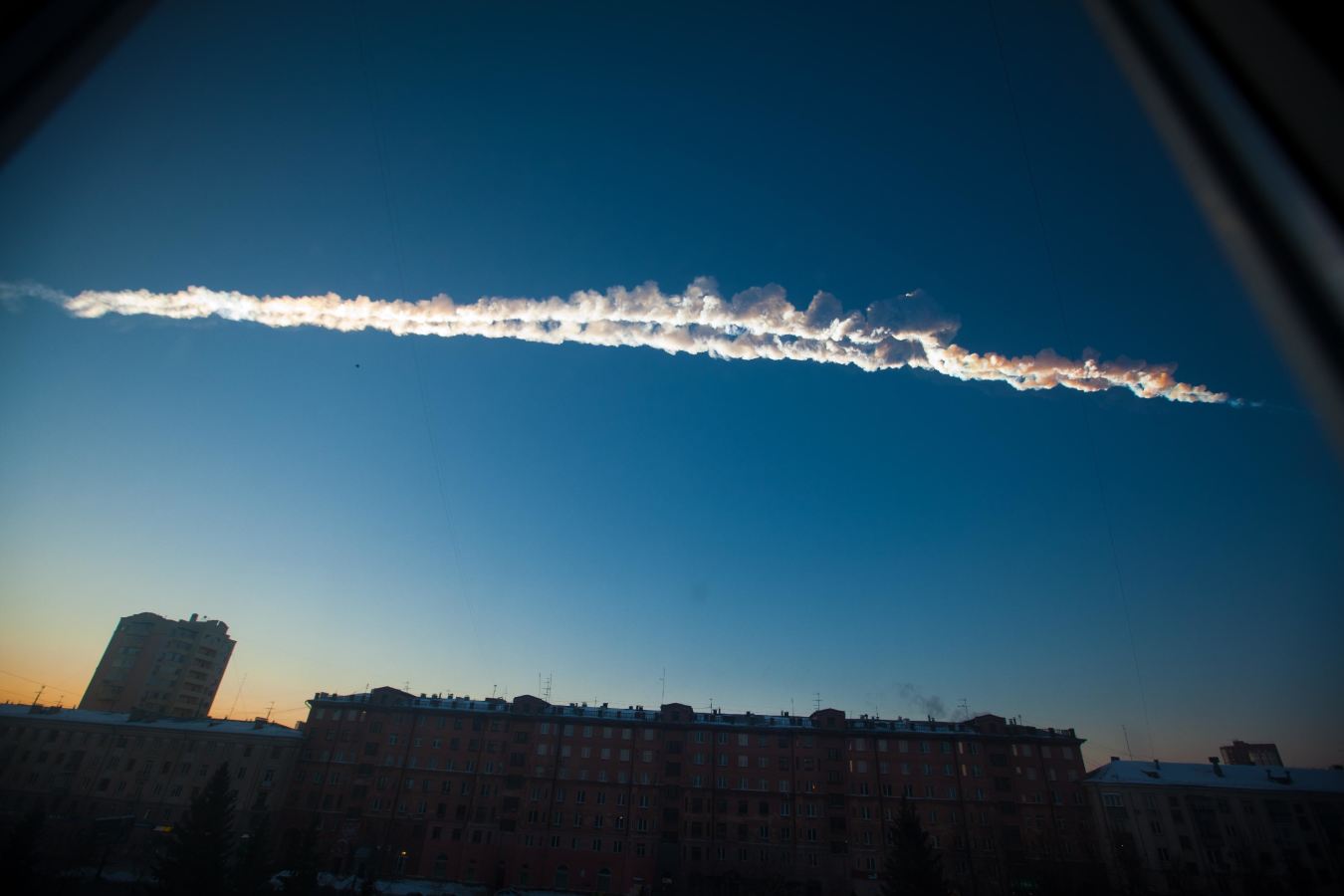
Meteorite - not the end of the world - strikes Russia's Siberia
A meteor the size of a bus exploded in the atmosphere over the Russian Urals city of Chelyabinsk Friday, terrifying thousands with blinding light flashes and powerful sonic booms that shattered windows, damaged buildings, and injuries may be heading toward 1,000, mainly due to flying glass and debris.
Thanks to the proliferation of new technologies like CCTV and dashboard cameras in cars, the dazzling meteor shower that hit the far-western Siberian region may be the first event of its kind in history to be filmed from almost every angle.
Dozens of videos have cropped up on YouTube and other social media, and they offer an astounding glimpse of what happens when a huge hunk of rock, estimated at about 10 tons, plows into the atmosphere at a speed of 30,000 miles per hour. It disintegrated in a series of bright flashes while still several miles above the Earth's surface.
According to eyewitnesses quoted by the Ekho Moskvi radio station, the event began around 9 a.m. local time, when it was not yet full daylight. The station said that thousands of people rushed into the frigid streets, looking up at the fiery contrails in the sky, with many wondering if it was an air disaster, a missile attack, or the end of the world.
RECOMMENDED: Do you know anything about Russia? A quiz.
"My ears popped, the windows in our building are smashed, everyone says an airplane exploded. My cellphone stopped working for awhile," said one witness from Chelyabinsk.
"I was driving to work and suddenly there was this flash that lit everything up like bright sunlight," said another. "The shock wave nearly drove me off the road."
Close to 1,000 people were reported injured, but only three seriously enough to be hospitalized, according to the official RIA-Novosti agency. Windows were blown out across a wide area, and several buildings were reported damaged, including a Chelyabinsk factory, whose roof caved in.
Pieces of the meteor have been reported coming down across several regions in western Siberia and even nearby Kazakhstan. Russia's Defense Ministry reported that soldiers have located a 20-ft.-wide crater near a lake in Chelyabinsk region.
Russia's military may have known of the impending meteor strike several days in advance, but did not issue any special public warnings, according to the independent Ro*****alt news agency (link in Russian).
"The preliminary data about its size and composition suggested it would break up in the atmosphere. There was no cause for alarm," the agency quoted an unnamed Defense Ministry official as saying.
Experts say that such meteor showers are not uncommon, but this one was much bigger than usual, and it occurred over a major population center in the early morning, where huge numbers of people could watch it. Chelyabinsk is an industrial city of about 1 million.
"Judging by the intensity of the shock waves, this was a body at least 30 ft. in diameter and weighing around 10 tons. That's a big one," says Nikolai Chugai, a department head at the official Institute of Astronomy in Moscow.
"It came in very fast, at a shallow angle, and disintegrated in an arc across the sky. That accounts for the amazing sound-and-light show.... If it had come in vertically, it would have been way more destructive, but over a smaller area," he adds.
The European Space Agency reported Friday that there is no connection between the meteor that hit Russia and the huge 165-ft. diameter asteroid known as DA14, which is due to pass within 17,000 miles of Earth – less distance than satellites in geosynchronous orbit – within the next day or so.
"It did a lot of damage, but what do you expect?" asks Nikolai Zheleznov, an expert with the Institute of Applied Astronomy in St. Peter*****urg. "A meteorite is a large projectile, like a bomb, that enters the atmosphere at high speed. Imagine the kinetic energy in a rock 30 ft. across. When it comes roaring into the atmosphere, the air density is like a solid wall that it slams into. Kinetic energy turns to heat, and then there is percussion....
"We live in a solar system that's full of asteroids and meteorites. There's no avoiding them. Thousands of tons of meteorites fall onto the Earth every year, far more than we can even keep track of. So, try not to worry too much."
